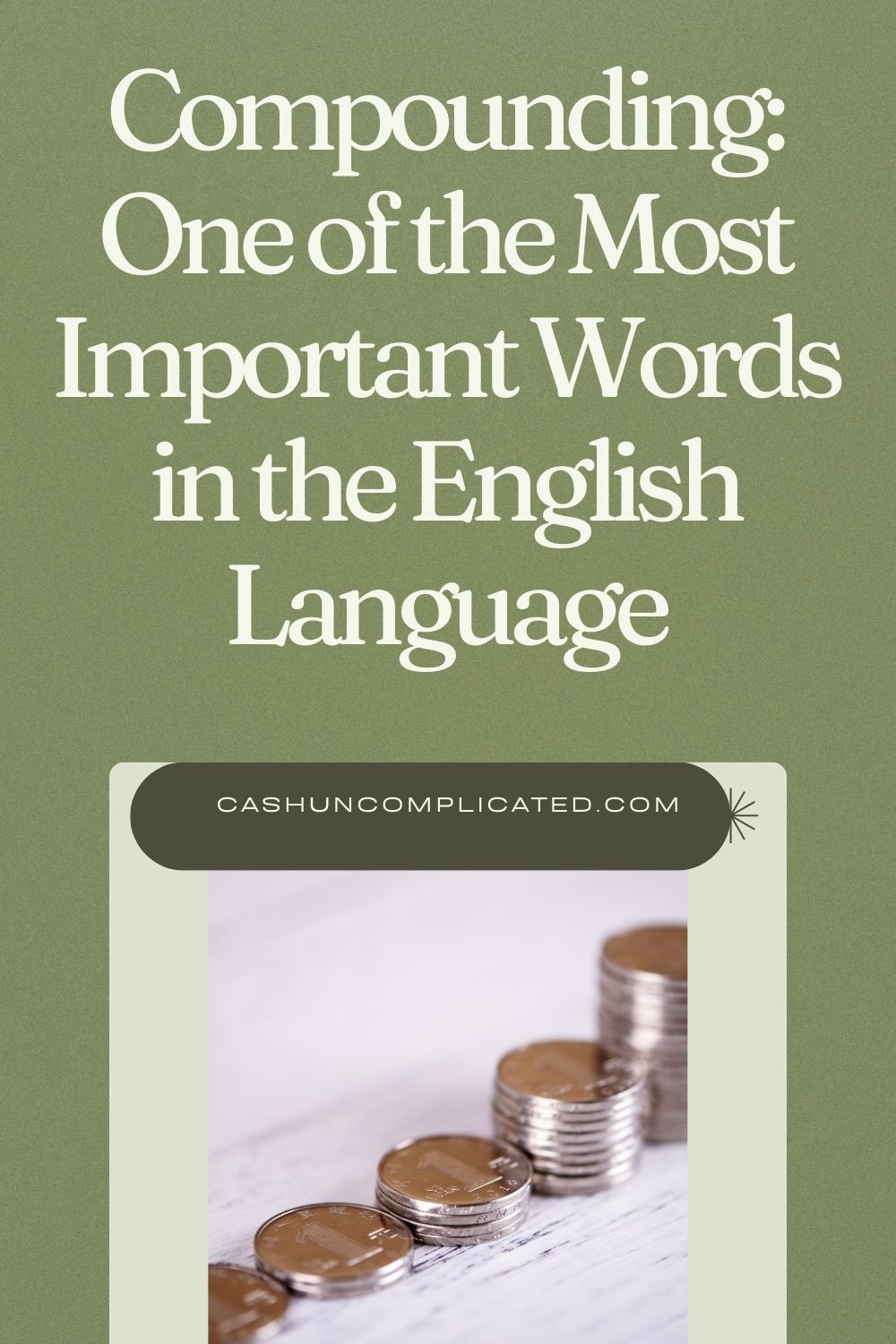There’s a word I was familiar with growing up, but didn’t really fully grasp until a few years ago. It’s a word so important that there have been multiple books written about it, and all successful people use the power of it, whether they know it or not. The word I’m writing about is compounding.
Why Create This Post?
Compounding is such an important word that I think it deserves its own post. I don’t know that the majority of people completely recognize the massive power of compounding. Understanding it can make a major difference in anyone’s life.
Isn’t Compounding Just About Money?
The first thing that comes to mind when hearing the word compounding is probably money. The two are kind of tied together because of compound interest.
Many financial experts and advisors talk about the power of compounding and detail in great depth about how compounding over time creates potentially massive wealth. There’s also famous quotes about it, like the one from Einstein: “Compounding is the eighth wonder of the world. He who understands it, earns it… he who doesn’t… pays it.”
There’s a lot more to compounding than just money though. It applies to multiple areas of life–time, relationships, our efforts, etc. It’s a very powerful word and concept across multiple facets of life.
These are six key areas in which compounding is more than just money.
Book Suggestions:
Number 1: Efforts
Think about something hard you’ve done in your life. Maybe you ran a marathon, graduated top 10 in your class, wrote a book, etc. Go back to that time and detail how you got there.
That hard thing you did was a compounding of your efforts. Take running a marathon for example. The first day training was probably a couple miles at most.
Then you added on time, and more time after that. With each training session, you got a little better and by race time, you were a totally different physical specimen than when you first started training. This is a compounding of efforts.
Number 2: Money
It wouldn’t be a personal finance blog without writing something about money. Especially when it comes to compounding, and compound interest.
This is the enormous power of compounding using a ten percent rate of return as an example:
- $200 per month invested for 40 years equals $1,168,444
- Investing $500 per month over 30 years equals $1,085,661
- The person who invests $1,000 per month would have $1,298,181 after 25 years
The monthly contributions are comparatively small, but the gains are enormous as compounding occurs. And as the years go by, the compounding only gets bigger and better.
Number 3: Health
Think about two neighbors: Bob and Matthew. Both are 29 years old and about the same height and weight. Bob works out almost everyday and sticks to a lean, sustainable diet.
Matthew on the other hand works out when he walks from the couch to his refrigerator and hasn’t seen the inside of a gym since high school. He also says walking isn’t real exercise and that he’ll get around to getting in better shape when he’s 30.
Bob and Matthew look fairly similar. Both look to be in decent shape and nobody would describe either as overweight. Bob looks like he’s in the better shape of the two, but it’s not a dramatic difference.
Fast forward five years and Bob looks about the same. Matthew is beginning to develop a small gut, but again, nothing dramatic. 10 years later, Bob looks like he did when he was 29, but Matthew has high blood pressure and is about 30 pounds overweight.
Ten years after that, the results are even more dramatic. Bob is in great shape for his age, but Matthew is now 50 pounds overweight and was told by his doctor that he’s at great risk for heart attack, stroke, and other major health ailments.
This is compounding. Not much difference between the men in the beginning, but as the years pass by, the difference became extraordinary. Bob remained in good health while Matthew was having major health issues.
Number 4: Knowledge
Picture two people fresh out of college. One person reads two books per month about an important topic like health, wealth, or communication. The other person never picks up a book again. After one year, the reader has read 24 books on one of these topics.
After two years, the reader has read 48 books. Five years later the reader has read 120 books. And 10 years later, the reader has completed 240 books. All while the first person has read none.
The knowledge gap between the two people is incredibly wide at this point. The reader has all this knowledge (and hopefully a good amount of application) while the non-reader doesn’t have any of it. Knowledge wise, this puts the reader light years ahead of the non-reader.
Number 5: Experience
Ever said something like this?
- “If I only knew back then what I know now”
- “Had I only bought that property 15 years ago…”
- “I can’t believe I was so naive”
If we do life right, we learn from our experiences and get better. How many of you would have started investing earlier if you had a chance to go back in time? Or who would do at least one thing differently knowing what you know now?
Experience compounds and makes us a stronger and better person. We learn from our own mistakes, by observing other people, and getting feedback. Then we make improvements and keep growing.
Number 6: Relationships Established
For the purposes of this post, I’m not just talking about relationships with a partner or spouse. I’m referring more to relationships established with friends and professional contacts.
Picture someone doing well in their line of work. They spend a couple years at an entry level job then move up to middle-manager. One of their friends from work moves to another job and six months later calls you up to tell you about an opportunity at the new place of work.
You go to the new job and meet some amazing people. A few of those people leave to either start their own company or go to another one. A few years later, one of those friends gets in touch with you about a new opportunity you’d be perfect for. You cut to the front of the line and get to meet with the CEO directly about the new opportunity.
You’re hired and are now making double what you were in your previous job, in a line of work you enjoy more. Some people call this networking, but I call it being a good person, quality worker, and making some friends along the way. If the average person does this, opportunities will compound.
Conclusion
LIfe doesn’t have to be that complicated. Unleashing the power of compounding makes things all the more easier.
Simply performing daily or weekly actions consistently over a period of time will lead to massive results.
- Making two new friends and/or business contacts every year for 10 years leads to 20 more good contacts
- Reading two books every month on an important subject for 10 years means you will have become an expert, or close to an expert, on that subject
- Investing $500 per month at a 10 percent rate of return for a 30 year time period will result in over a million dollars
Massive action helps, but performing small actions on a daily basis really is what moves the needle. The progress may seem slow at first, but it will eventually explode, making you an almost unrecognizable person.
How has compounding benefited you in your life?








